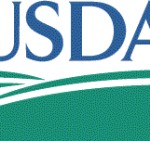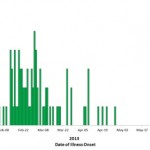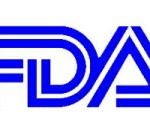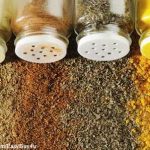E&B's Natural Way of Maryland is recalling 27,948 pounds of raw lamb products because they were not presented at the U.S. border for USDA-FSIS import inspection. Without the benefit of full inspection, a possibility of "adverse health consequences" exists, according to the USDA. No reports of adverse reactions have been received to date. The recalled products were packaged on October 21, 2013, and September 2, 20, 21, and 22, 2014. They are: Lamb Packs, Lamb Bone-In Legs, Lamb Boneless Legs, Lamb Saddles, Lamb Racks, Lamb Loins, Lamb Shoulders, Lamb Shanks, Lamb Trim, and Lamb for Stew. The products have the establishment number "IS A022 EFTA" and include a label indicated "Product of Iceland." They were shipped to retail establishments in Washington and Oregon where they would have … [Read more...]
Advocates Want OMB To Finalize Catfish Inspection Rule
Food & Water Watch along with other organizations such as Consumer Federation of America and Center for Foodborne Illness Research and Prevention called on the Office of Management and Budget to finalize an inspection program for domestic and imported catfish. The USDA drafted a final rule on this matter back in 2008 but nothing has happened since then. The FDA currently regulates catfish. Domestic processors are currently inspected just once every 5 to 10 years; only 2% of imported catfish is inspected. In 2013, Americans consumed more than 305 million pounds of catfish; about 78% of this is imported, with 95% of imported products coming from Vietnam. That country uses many animal drugs in aquaculture that are not approved in the U.S.; 32 drugs have been approved for use in … [Read more...]
Giant African Land Snails Seized at L.A. Airport
Public health officials have seized 67 giant African land snails at the L.A. airport on July 1, 2014, because they are prohibited in this country. The animals are considered a delicacy in some countries, especially Nigeria, where they are used to make stews. The snails can carry parasites that cause meningitis. These animals are a threat to public health, agriculture, and the economy. Paperwork that was packed with the snails stated they were for human consumption. This particular species is an agricultural pest. Maveeda Mirza, a U.S. Customs and Border Protection agriculture program manager said, "these snails are seriously harmful to local plants because they will eat any kind of crop they can get to." These snails have been smuggled into the country before, but only a few at a … [Read more...]
Cobblestone Farms Baby Back Ribs Recalled
Cobblestone Farms Baby Back Ribs, which were produced in Canada, are being recalled because they were not presented at the border for inspection. Skilcor Food Products in Brampton, Ontario, is recalling approximately 36 pounds of the fully cooked pork baby back ribs in honey garlic barbeque sauce which were distributed to Shop Rite stores in Brooklyn. The recalled products was sold in 1.5 pound packages labeled “Cobblestone Farms Fully Cooked Pork Baby Back Ribs in Honey Garlic Barbeque Sauce” with the package code “Sell By 2015-AL-08” and case code “15201” The Canadian mark of inspection with establishment number “624” also appears on the product. There have been no reports of illness. But consumers who have purchased this product should not eat it. Anyone with concerns about an … [Read more...]
Salmonella Outbreak from Imported Cucumbers Sickened 84
A Salmonella outbreak linked to cucumbers imported from Mexico that sickened 84 people in 2013 ended one year ago. The outbreak, which began in January 2013 and ended in April 2013 sickened 84 people in 18 states. Seventeen people were hospitalized. Although about 1.3 million Americans contract Salmonella infections every year, the outbreak strain of Salmonella Saintpaul was one rarely seen in the U.S. with less than five cases reported annually. Symptoms of a Salmonella infection, which include fever, diarrhea, and vomiting can last up to 10 days. But long-term health problems, such as reactive arthritis, inflammation of the heart, spine, tendons and eye membranes can also stem from these infections. Public health investigators, who used pulsed-field gel electrophoresis (PFGE) to … [Read more...]
USDA Relaxes Regulations for Mad Cow Beef Imports
Last week, the USDA's Animal and Plant Health Inspection Service (APHIS) announced its intention to publish a rule that would allow some beef to be imported from countries that have experienced cases of mad cow disease. Bovine spongiform encephalopathy (BSE) is a progressive neurological disorder that is caused by eating a prion protein from infected beef. The prion is not destroyed by cooking. The agency says this is a "modernization" of import regulations. Food & Water Watch released a statement about this decision. Wenonah Hauter, Executive Director of that agency, said, "This seems to be another case of trade trumping food safety. This development comes as the reopening of beef trade with Europe has been an issue under discussion in the Transatlantic Trade and Investment … [Read more...]
Senator Questions USDA About Safety of Meats from China
Last week, Senator Sherrod Brown (D-OH) questioned the USDA over the safety of meats imported to the U.S. from China and the adequacy of the food safety inspection program in that country. Earlier this month the USDA announced that meats processed in Chinese facilities will be allowed into American markets with no label indicating where they were processed. Brown said in a statement, "given the well-documented shortcoming of the Chinese food safety system, we shouldn't allow unmarked meat into our markets that is processed in Chinese facilities that are not subject to food safety inspections. This action could endanger the health and safety of American consumers and potentially undermines confidencee in our nation's food safety standards." The equivalency standard that was granted to … [Read more...]
FDA Releases Two Year Plan for Program Priorities
The Food and Drug Administration (FDA) has released its two year Plan for Program Priorities. It is designed to meet the issues of the globalization of the food supply chain, changing industry processes, and consumer preferences for fresh and minimally processed foods. The Center for Food Safety and Applied Nutrition (CFSAN) is implementing the plan. There are six program objectives detailed in the plan, taking into account new authorities established by the Food Safety Modernization Act (FSMA). The first goal is to reduce foodborne illness rates every year by publishing guidance for egg safety, manufacturing process changes, and record keeping for high-risk foods to facilitate traceback. Rules on infant formulas, guidance on arsenic in apple juice and other foods, and rules for "gluten … [Read more...]
USDA Research Finds Salmonella in Imported Spices
When we cook and bake, we are concerned with foods safety. We wash our hands after preparing raw chicken or other meats, wash produce before eating, avoid cross-contamination, and use a food thermometer to check the temperature of meat dishes. But not many people think about spices as a source of foodborne illness. The USDA, in a response to increased concerns about the safety of spices we buy, initiated research to discover the prevalence of Salmonella in imported spices. Shipments of imported spices were sampled during the fiscal years 2007 to 2009. Scientists found a wide diversity of Salmonella strains in these spices. About 8.3% of the samples contained antibiotic-resistant Salmonella strains. The researchers also found that a larger proportion of spice shipments derived from … [Read more...]
Food & Water Watch Questions USDA After Dioxin-Contaminated Chicken Recalled
Consumer advocacy group Food & Water Watch called on the USDA to answer questions about gaps in the government's import system after 200,000 pounds of chicken imported from Chile was recalled for dioxin contamination over the weekend. They would like to know when the government learned of the problem, since there was a lag issuing the press release, and if port-of-entry inspection procedures played a role in identifying the problem. Since there was a 2012 audit of the Chilean food safety system that indicated staff needed training on dioxin contamination, how long has this been an issue? Finally, why was a press release issued, instead of a recall or a public health alert? Dioxin is a highly toxic chemical and can cause cancer, reproductive and developmental problems, damage the … [Read more...]













